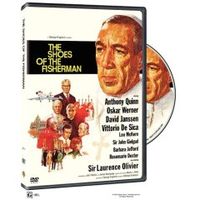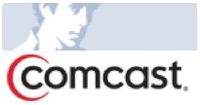
The unbundling of cable, the decision of millions to go “over the top” and choose instead to get their entertainment directly from the Internet, is one of the great sea changes of this decade, driven by rising costs and (perhaps more important) a shortage of time. Lost may be serendipity, the decision to watch things because they are on.
Today, for instance, I watched George Englund’s The Shoes of the Fisherman, a 1968 MGM film in which Anthony Quinn plays a radical cross between Pope John Paul II and Pope Francis, renouncing communism and wealth at the same time in the name of secular decency. Given that it was made early in the pontificate of Paul VI (John Gielgud gets one scene playing a nice version of Paul, then dies to make way for the plot) it is many decades ahead of its time. (Quinn’s character is even proclaimed a cardinal from Lvov, which is in western Ukraine, and a starving China drives the plot.) But it’s not what I would be watching if I had the whole world to choose from.

But what do you want? I know what I want. I like soccer. I like old movies. I like financial news, a little comedy, travel and food. I never even glance at the vast majority of channels my cable company offers. But I pay for them all, even those I have a fierce objection to. And the people who own those channels I object to use my money to work their political will on the rest of us.

But I’d like to see them on my TV sometimes, and in fact their games are broadcast. Just not to me. The league has a contract, which in turn has a contract with BEIn sports, owned by Qatar’s Al Jazeera. They in turn may choose to show games, or not. And it’s usually not, since they have rights to the French, Italian and Spanish major leagues.
Wednesday (as they’re called) also participate in the FA Cup, the world’s oldest knock-out competition, in which every team in England – even semi-pro teams – gets a shot at the prize. Rights to those games are owned by Fox Sports. But because Fox is trying to force Comcast, my cable operator, to take more of its sports channels (it only takes one now) the vast majority of those games aren’t made available. They’re not even made available online, even those games they’re broadcasting on the other sports channels. So my Internet connection is useless.

Now here’s the thing. I would gladly pay $10/month to get all the Wednesday games, in the clear, on my big screen. They play about 50 times each year. That’s $2.40/game, whether I watch or not. And there are some other services I might buy in the same way. I already pay $8/month for Amazon Prime. I might pay for HBO and Netflix as well. I might even pay for movies or shows on a one-time or “rental” basis, and have at times. Take it all together, and I’d gladly pay about $60/month, maybe a little more and maybe a little less, to get the programs I really want, a la carte, online.
If cable offered a similar deal, I’d be happy to take it. I’d take TCM, Comedy Central, all the sports channels, and probably a few news channels and entertainment channels in a personal “bundle” at $40/month. And I’d pay $50/month for “TV” access, as I pay $50/month for Internet service. This actually equals my present bill, give or take a few dollars.

Getting from here to there is not a technological hurdle. It’s a business hurdle. It requires a whole lot of people to stop trying to “force” themselves into my house and accept my decisions about the use of my money and time.
This is the world we’re moving to. But there are some important points to note as we move toward this world.
- The power is yours. The way from here to there is torturous, and we all need to be willing to use our economic power, to withhold it as necessary, to get what we want.
- Time is limited. Your time has value, enormous value. It’s worth more than the money you bring to the party. The sellers in this game don’t understand it, but you can.
- There is a cost to all this. As with music and books, for which we no longer visit stores, making hard choices about what to watch means you can lose the power of serendipity. When you choose, you lose the power to have choices thrust upon you. Which is a bigger loss than you realize, before you make the choice.

Take your power. Take control of your time. Do something valuable with it. That is the key task of the western consumer in this second decade of the 21st century.










